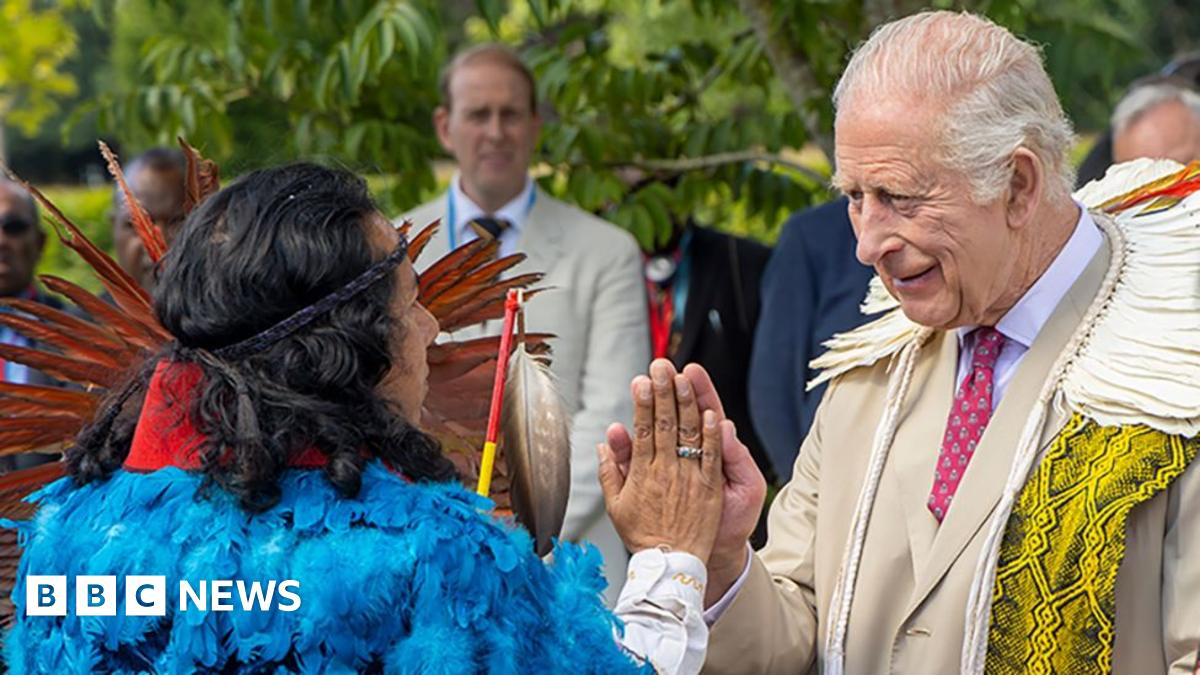Highgrove itself has an example of the King’s private sense of spirituality. There is a small sanctuary tucked away in the grounds, where no one else goes inside, where he can spend time completely alone with this thoughts.
It must seem a world away from the ceremonial juggernaut of this week’s state visit by France’s President Macron.
The focus of this inaugural Harmony Summit was drawing on the wisdom of indigenous people, tapping into their knowledge and pre-industrial ways of working with nature.
Survivalist Ray Mears was there to welcome representatives of the Earth Elders group, who work to defend the rights of “original peoples”, who have become the threatened guardians of the natural world. They were wearing traditional headdresses, face paint and ornaments, in among the flowers and trees of Highgrove.
“People’s selfishness has taken them away from nature. They can’t feel the breeze, they’re too focused on the clock,” said Mindahi Bastida, of the Otomi-Toltec people in Mexico.
The cacophonous modern world has broken our connection with nature, said Rutendo Ngara, from South Africa. She described our era as a time of “loud forgetting”.
“We all have egos and ambitions. I wanted to be an entrepreneur, I wanted to sell out,” said Uyunkar Domingo Peas Nampichkai, from Ecuador, the co-ordinator for the Amazon Sacred Headwaters Alliance.
The temptation for him was to sell his land for oil. He decided a different path and explained what “harmony” now meant to him.
“It’s well-being for all human beings, all living beings, visible and invisible, it’s Mother Nature… Everything is connected and there’s mutual respect,” he said.
These were people from forests and rivers who talked of the destructive pressures on them, from mining, oil and urbanisation.
The weren’t pulling punches either. There were speakers warning of how “Europeans” had killed their people and another who said that the much-hyped COP climate change gatherings were full of empty promises that never delivered for grassroots communities.
Ailton Krenak, from Brazil, talked of rivers that that had been “erased by money” and seeing the dried-up, polluted waterways was like a much-loved “grandfather in a coma”.
